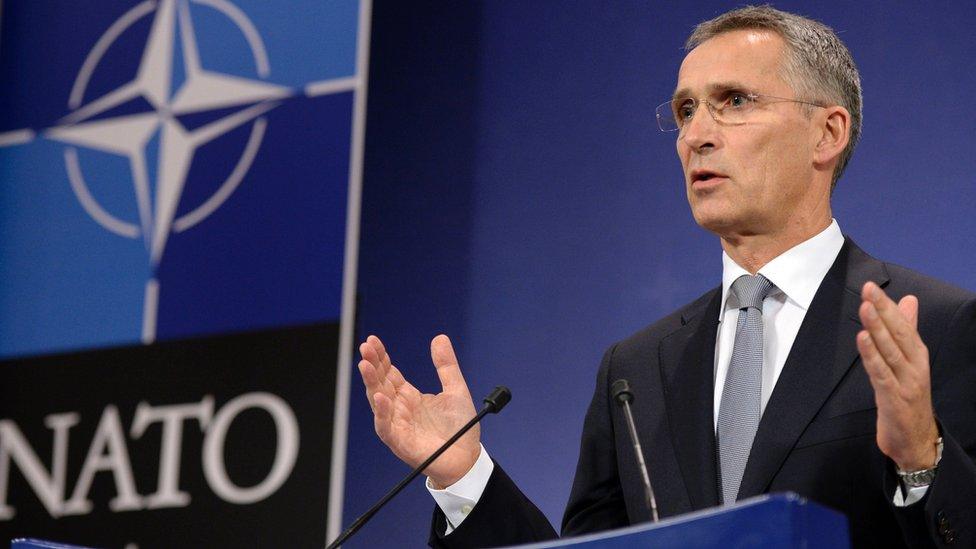Bulgaria warns of Russian attempts to divide Europe
- Published
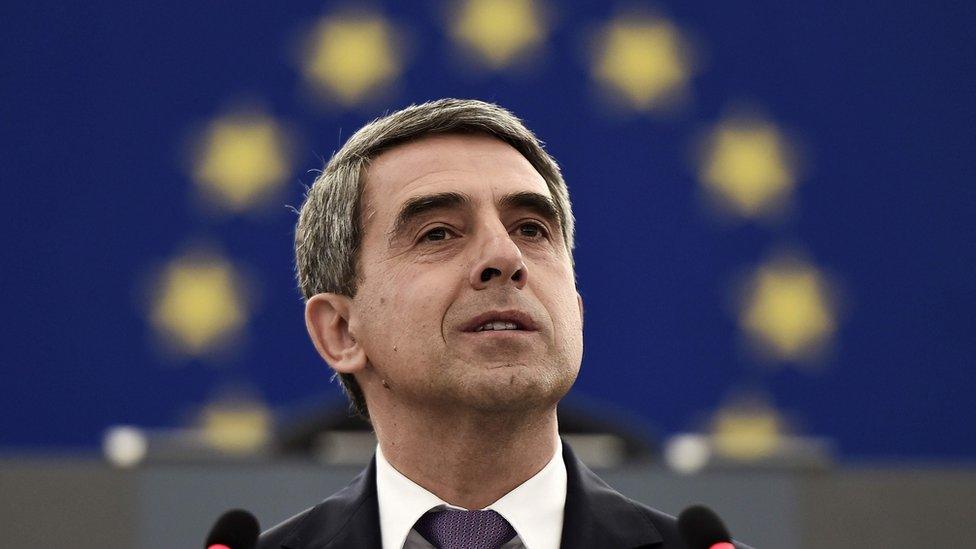
Rosen Plevneliev: "The game of Mr Putin is to make other countries dependent"
The president of Bulgaria has told the BBC that Russia is trying to divide and weaken Europe.
Rosen Plevneliev warned of Russian influence in his country and across the continent and said Europe needed to take a stronger line.
Elections to pick a new president take place in the country on Sunday, with a run-off a week later if no candidate wins an outright victory.
Mr Plevneliev, who is not standing for re-election, will step down in January.
He also said his country had come under a cyber attack during a referendum and local elections last year, which he said was almost certainly linked to Russia.
'Cold Peacetime'
Europe has not returned to the Cold War, the Bulgarian president believes, but instead is involved in a new "dangerous and unpredictable" confrontation which he calls "Cold Peacetime".
The threat now is less about Russian tanks invading Europe and more about Russian influence dividing the Continent, he argues.
"The game in Europe today is not to have a full-scale war and to shoot against your enemy, but the game of Mr Putin is to make other countries dependent," he said.
"What today Russia is trying to achieve is to weaken Europe, to divide Europe and to make us dependent."
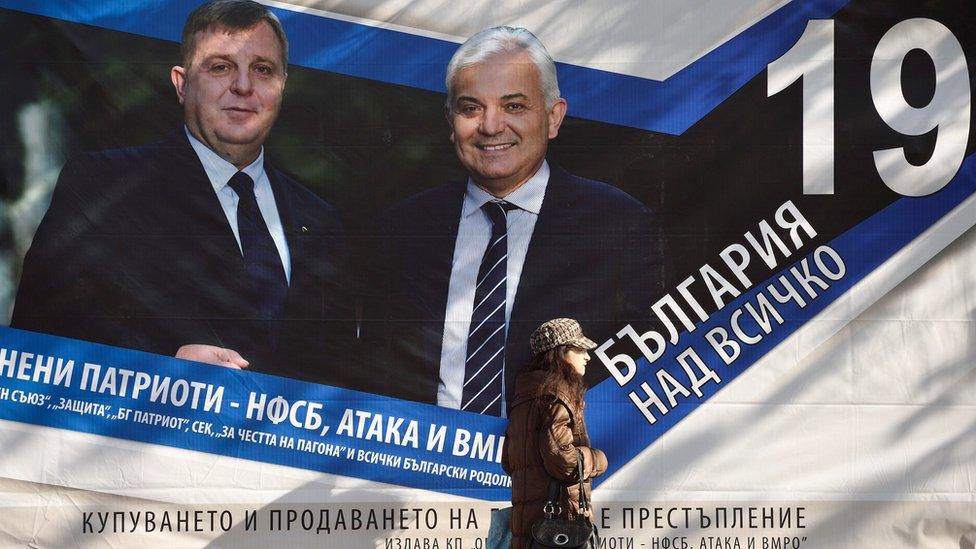
Bulgaria holds the first round of presidential elections on 6 November
The streets of Sofia, the Bulgarian capital, bear witness to the strong Russian influence in a country which was once part of the Soviet-bloc but which is now a member of both the EU and Nato.
Which direction the country should face is a key issue in the election and the current president has angered some in his country with his criticism of Moscow.
Between 20% and 25% of the Bulgarian economy is linked to Russia, according to Martin Vladimirov, an analyst at the Center for the Study of Democracy in Sofia who co-authored The Kremlin's Playbook, a report on Russian influence in the region.
"Russia has been able to leverage its economic influence to capture key institutions in the country," Mr Vladimirov said, arguing that Russian money had been used to finance protests and directly affect laws as well.
'Attack on democracy'
The president believes Russia's main tools across Europe include the funding of populist political parties and movements from the political extremes, extensive propaganda and also cyber attacks to destabilise opponents.
Last October, Bulgaria was subject to a major cyber attack. "That was the most heaviest and intense cyber attack that has been conducted in south-east Europe," he said.
The denial of service attack - which tries to make websites inaccessible - targeted the electoral commission, presidency and other government institutions on the day of a referendum and local elections.
"I consider it an attack on the Bulgarian democracy," he told the BBC, arguing it was designed to cause confusion around results, something which some in the US fear could be possible in their elections next Tuesday also.
The assistance of Nato allies has left the Bulgarian president with little doubt as to who was responsible.
"The same organisation that has attacked the Bundestag- stealing all the emails of German members of parliament - the same institution that has attacked Nato headquarters, and that is the same even that has tried to influence American elections lately and so in a very high probability you could point east from us."
'Fancy Bears'
The group linked by the US administration and Western private security groups to those incidents is a group of Russian hackers known as "Fancy Bears" or APT 28, which the US administration said was likely acting with the support of senior Kremlin officials in targeting the US political system.
"I just say it is the same address, the same signature and the same approach we have seen also here in Bulgaria," Mr Plevneliev said.
"This is an attack on the Bulgarian state and the Bulgarian democracy and its conducted with a high probability from Russia."
Bulgaria has since drawn up a new cyber security strategy which he believes will leave it with better protection against any renewed attempts in the forthcoming vote.
Electronic voting machines are used in some areas but these are not connected to the internet, and so the main risk remains one of spreading confusion rather than altering the outcome.
Ensuring a strong consistent line from the EU on Russia was vital, Mr Plevneliev said.
"Nato is strong, I also wish the European Union also could be stronger and united on the problems we have today."
Europe, he acknowledged, was facing a range of other crises with migration and refugees as among the most significant, and one which could split the EU.
Mr Plevneliev told the BBC he was "saddened and shocked" by the British vote to leave the EU. "This was a very tragic moment," he says. "Brexit is a crisis and a very serious one."
One reason for his concern is that Britain leaving the EU may make it harder to pursue a stronger line on Russia, since it has supported his more robust position on European security.
Ensuring the process of separation was not painful was a priority, he added.
"If Brexit is going to be a divorce, we should stay the best possible and the closest friends."
- Published30 May 2016
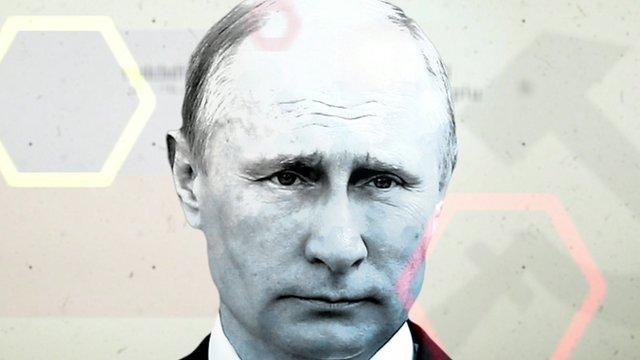
- Published5 October 2016
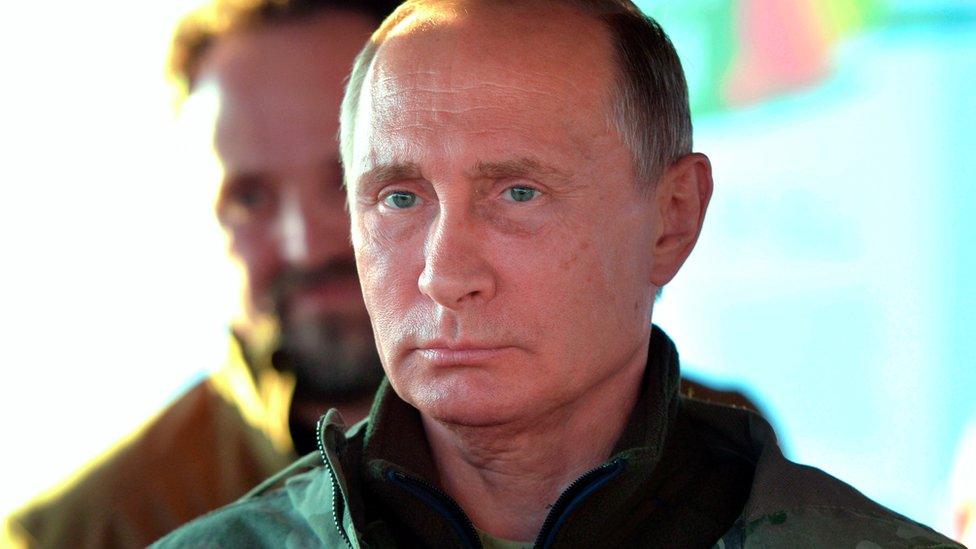
- Published1 November 2016
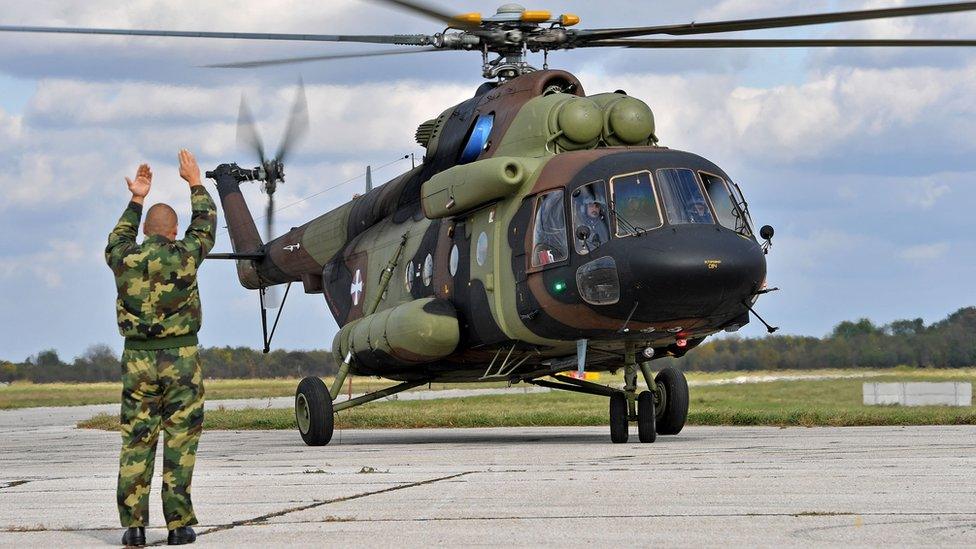
- Published28 October 2016
